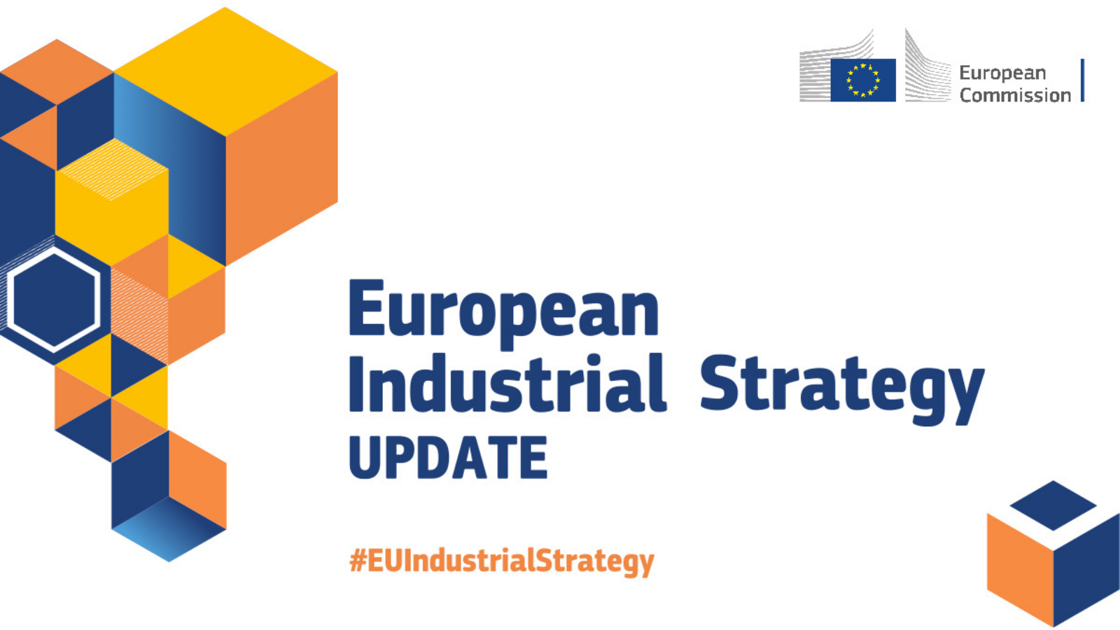IndustriAll Europe will be vocal in the newly created Industrial Forum and all other arenas for a strengthening of European industrial policy ambition – the scale of climate ambition and pace of digitalisation across Europe demand public policy intervention that smoothens the transformation for workers in our industries.
The updated strategy aims to address the impact of the COVID-19 crisis on our economies, the exposed strategic dependencies on essential goods, components and materials, and the fragility of the single market as revealed over the past year. IndustriAll Europe has long called for assertive EU industrial policy and greater coordination between member state actions, with cohesion and quality job creation at its core.
Union warnings about strategic value chains heard – now action is needed
It is increasingly clear that shortages in strategic value chains, as well as shortages of skilled workers, are undermining European industries’ abilities to recover rapidly from the pandemic. A recent IFO survey in Germany revealed staggering shortages across many manufacturing sectors, from leather and wood to semi-conductors and polymers. Similar shortages in several sectors have been documented in other member states. Therefore, it is unfortunate to read in the European Commission’s Communication that these strategic dependencies, primarily but not exclusively on China, came as a surprise to Europe. European industrial workers have been raising concerns about the offshoring of manufacturing and critical supply chains for decades, particularly semi-conductors. Now that the analysis is shared, it is crucial that European governments and the EU act decisively to tackle strategic dependencies through reindustrialisation, the circular economy and trade policy measures. The set of measures announced today to tackle unfair competition due to foreign subsidies should also be used as a tool to reindustrialise Europe and support its industrial value chains.
Accelerated industrial change demands negotiated transition pathways
As in the March 2020 industrial strategy, the focus is squarely on the green and digital twin transition underway in our industries – although the attention has shifted in this new update towards the acceleration of change and need to ‘co-create’ transition pathways for the 14 eco-systems under the industrial strategy. This is a welcome step – both in written submissions and oral evidence, unions have been calling for sectoral roadmaps and more granular analysis – including the assessment of labour market developments and the corresponding skills needs.
It will be crucial that within eco-systems – especially large ones such as ‘mobility’ – that sectoral analysis is included as the challenges and opportunities for vehicle manufacturing in the automotive and the maritime equipment sectors may have overlaps but substantial differences. The same is true of the energy intensive industries eco-system. In this respect, industriAll Europe welcomes the specific attention to the steel sector included in today’s package – a year after the adoption of our European Steel Action Plan.
However, the ICT sector is largely missing in the communication, although it will be crucial for the success of the twin transition. The challenge is not only about the uptake of digital solutions, but also about ensuring that they are developed and manufactured in Europe. The ongoing shortages in key sectors show that major and reliable investments in a full-scale and green ICT supply chain in Europe are needed to ensure true strategic autonomy. Focusing merely on equipping workers with digital skills will not suffice, as we will need quality jobs and workplaces in Europe to make the twin transition a success.
Furthermore, industriAll Europe demands that these new transition pathways be co-created through active social dialogue at all levels – in line with the role that the EU Treaty ascribes to social partners and in line with the ILO guiding principles on Just Transition (2015). Social dialogue and worker participation are vital tools - under-recognised by many member states - and must be better promoted and strengthened by the EU institutions (as foreseen in the European Pillar of Social Rights Action Plan).
Speaking at an industriAll Europe seminar on energy intensive industries yesterday, Commission DG GROW Director-General, Kerstin Jorna, stated that the transition pathways depended on everyone working together, and we welcome the explicit recognition of social dialogue in today’s Communication: “For an inclusive transition, a well-functioning social dialogue will be key”*. IndustriAll Europe will be measuring this strategy on the active engagement of trade unions at all levels.
A policy jigsaw – all EU policies have a role to play if we are to see benefits for workers
The industrial strategy comes alongside several other policy initiatives already published, including the trade policy review, an extensive review of the EU competition rules to make sure that they are fit to support the green and digital transition, the communication on the digital targets for 2030 and the sustainable finance package (including new taxonomy rules). But it is the industrial strategy’s link with the forthcoming ‘Fit for 55%’ package on climate and energy which has drawn much trade union attention.
IndustriAll Europe has repeatedly stated that the Emissions Trading System cannot be considered as an industrial policy for the transition – this message seems to have been partially heard, with initiatives and pilots proposed on Carbon Contracts for Difference, standardisation instruments to support new markets for green products, and new guidelines on environmental and social public procurement. This can only be achieved through investment in infrastructure, investment in innovation and investment in workers.
IndustriAll Europe will be vocal in the newly created Industrial Forum and all other arenas for a strengthening of European industrial policy ambition – the scale of climate ambition and pace of digitalisation across Europe demand public policy intervention that smoothens the transformation for workers in our industries.
*Communication "Updating the 2020 New Industrial Strategy: Building a stronger Single Market for Europe’s recovery", page 5
